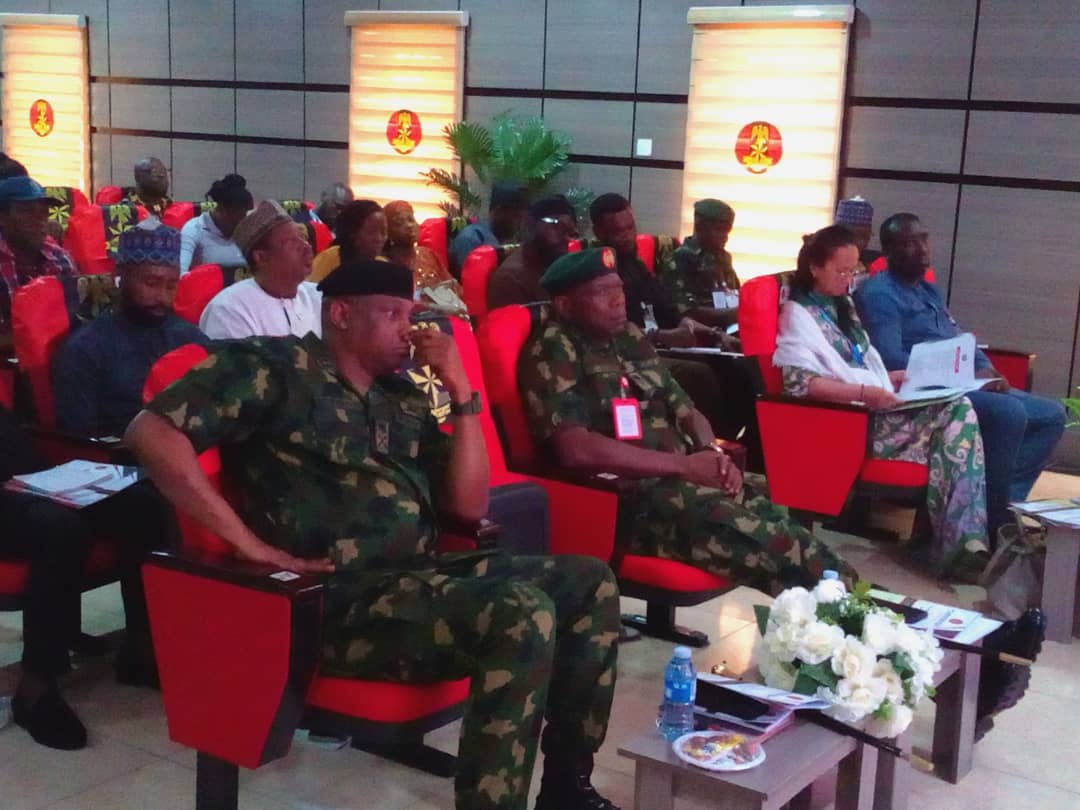By Sumaila Ogbaje
The Chief of Army Staff (COAS), Lt.-Gen. Olufemi Oluyede, says the Nigerian Army is deepening accountability and prioritising human security in all ongoing military operations across the country.
Oluyede stated this at the opening of the 2025 Nigerian Army Civil–Military Affairs Training for Non-Governmental and Civil Society Organisations (CSOs) on Wednesday in Abuja.
He was represented by Maj.-Gen. Sani Mohammed, Director, Test and Evaluation, Defence Research and Development Bureau at the event, organised by the Army Headquarters Department of Civil–Military Affairs.
The COAS said the army’s modern approach to security places equal emphasis on operational success, civilian protection and public trust.
He noted that Nigeria’s evolving security challenges required a whole-of-society approach, adding that the army was committed to building stronger partnerships with non-state actors, humanitarian groups and CSOs.
According to him, the training seeks to enhance mutual understanding of military doctrines and humanitarian operations while promoting dialogue and collaboration in conflict and post-conflict areas.
He said “the success of our operations is not measured by battlefield outcomes alone but by the peace, stability and confidence restored among the people.
“We remain committed to professionalism, transparency and respect for human rights in all our engagements.”
Oluyede assured that the army would continue to protect law-abiding citizens and provide an enabling environment for humanitarian and development organisations to operate effectively in all theatres of operation.
He commended the Department of Civil–Military Affairs for its consistency in bridging the gap between the military and the civil populace, describing it as vital to achieving national stability.
The army chief also expressed appreciation to President Bola Tinubu “for his steadfast support and guidance, which strengthened the army’s transformation and innovation agenda.
“National security is a shared responsibility.
“It demands synergy, trust and sustained collaboration between the armed forces, government institutions and the civilian population.”
The Chief of Civil–Military Affairs (Army), Maj.-Gen. Gold Chibuisi, also said the army was deepening civil–military cooperation to strengthen peace, stability and public confidence in ongoing security operations across the country.
Chibuisi described the forum as strategic collaboration between the military and humanitarian actors, adding that the initiative underscores army’s commitment to professionalism, transparency and respect for human rights in all its engagements.
According to him, the training aims to bridge understanding between the military and civil society, acquaint participants with the dynamics of military operations and promote effective coordination in humanitarian and community engagement efforts.
He explained that fostering mutual trust and dialogue was vital to addressing Nigeria’s complex security and socio-economic challenges.
He reaffirmed the service’s readiness to work closely with humanitarian and civil society groups to protect lives, restore peace and sustain development in post-conflict communities.
He urged participants to use the forum to build stronger partnerships that would advance national security and reinforce public trust in the Nigerian Army.
On her part, Ms Esty Butyoko, the Deputy Head of Office, United Nations Office for the Coordination of Humanitarian Affairs (UNOCHA), commended the Nigerian army for fostering greater understanding and collaboration between military and humanitarian actors in the country.
Butyoko lauded the army’s commitment to dialogue and partnership, describing the initiative as “testament to the institution’s openness and respect for civilian protection in complex operational environments.”
She emphasised that effective civil–military coordination is vital to addressing Nigeria’s evolving security and humanitarian challenges.
She noted that the collaboration between humanitarian actors and the military, though guided by distinct mandates, must be anchored on the principles of humanity, neutrality, impartiality and operational independence.
According to her, these principles not only enhance trust but also ensure the safety and dignity of crisis-affected populations across the country.
“This training provides safe and constructive platform for dialogue and shared understanding between the military, humanitarian and civil society communities, all working towards one goal — protecting lives and restoring hope,” she said.
The two-day forum, which draws participants from NGOs, CSOs, humanitarian agencies and security institutions, features presentations and discussions on topical issues of national security.
